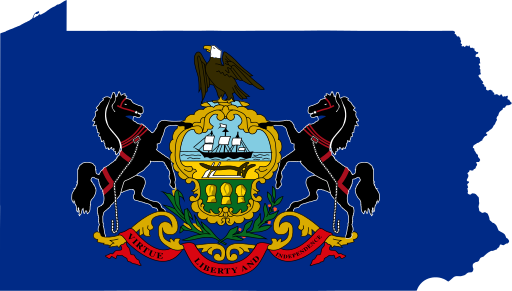On May 18, Pennsylvania voters approved two constitution amendments on the governor’s emergency powers, which were a point of conflict between the Republican-controlled Legislature and Democratic Gov. Tom Wolf during the coronavirus pandemic. According to unofficial results on May 19, both Question 1 and Question 2 received 54% of the statewide vote.
Voters also approved the other two statewide measures on the ballot by votes of 71%-29% and 72%-28%, respectively.
Question 1 allows the Pennsylvania General Assembly to pass a resolution, which would not require the governor’s signature, to extend or terminate the governor’s emergency declaration. Question 2 limits the governor’s declaration to 21 days unless the legislature votes on a concurrent resolution to extend the order.
The Legislature passed a concurrent resolution to end the governor’s coronavirus emergency declaration in June 2020. However, the Pennsylvania Supreme Court ruled that the governor could veto the concurrent resolution. On July 14, Gov. Wolf vetoed the resolution. A two-thirds vote in the legislature would have been required to overturn the veto.
Pennsylvania will join four other states—Alaska, Kansas, Michigan, and Minnesota—that require a legislative vote to extend or terminate a governor’s emergency declaration after a specific number of days. In Kansas, the requirement is 15 days after the order is first issued. In Michigan, the requirement is 28 days. In Alaska and Minnesota, the requirement is 30 days.
Ballotpedia did not identify ballot measure committees that supported or opposed the constitutional amendments. Americans For Prosperity and The Commonwealth Foundation—both 501(c) organizations—spent about $150,000 through independent expenditures to support Question 1 and Question 2.
The Pennsylvania amendments were the first in the country to address the governor’s emergency powers since the pandemic began. In 2021 or 2022, at least six other states will vote on at least seven other ballot measures in response to the coronavirus pandemic and related restrictions. In November, Texans will vote on a constitutional amendment to prohibit the state or any political subdivision from limiting religious services or organizations.
The approval of Pennsylvania Question 1 and Question 2, as well as Question 3, continues the trend of successful constitutional amendments in the state since 1989. Between 1989 and 2020, 15 constitutional amendments were approved. Pennsylvanians could see more constitutional amendments on the ballot in November. Potential measures that have passed in one chamber of the legislature include amendments to have gubernatorial candidates select their lieutenant gubernatorial running mates and to reorganize the election of state judges and justices into districts.
Additional reading:


